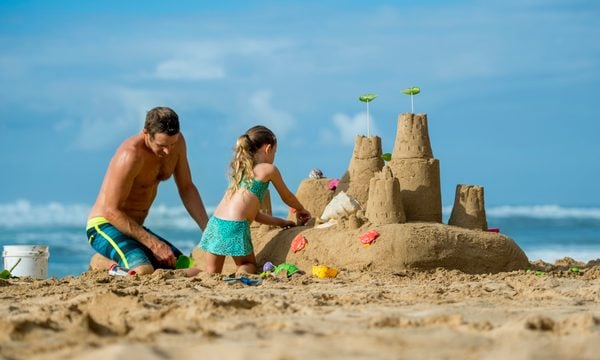A Passenger From the ‘Poop Cruise’ Shares Travel Must-Haves
Travel emergencies can happen. Here's how you can be prepared.
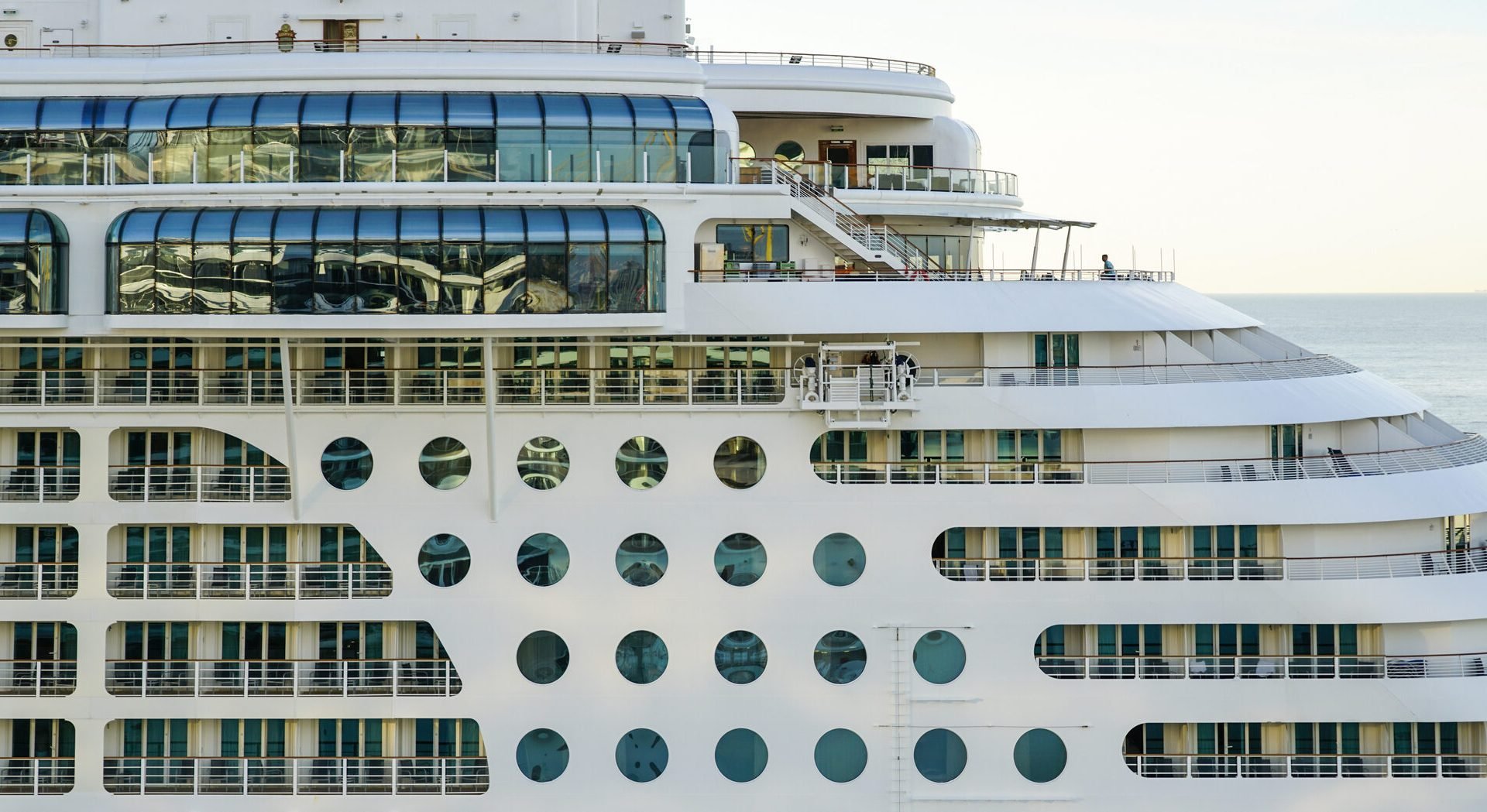
Many or all of the products on this page are from partners who compensate us when you click to or take an action on their website, but this does not influence our evaluations or ratings. Our opinions are our own.
Travelers aboard a Carnival Triumph cruise ship in February 2013 endured many cruisers' worst nightmare: They were trapped on a ship at sea without basic necessities like electricity and plumbing. Netflix chronicled the saga in a 2025 documentary called “Trainwreck: Poop Cruise.”
Devin Marble was traveling with his family on the ill-fated Carnival Cruise Line ship and is featured in the Netflix documentary. Here's what he learned from the experience and what essentials helped him and his family during the ordeal.
What happened on the 'Poop Cruise'
The Carnival Triumph ship was returning to Galveston, Texas, from Cozumel, Mexico, when a fire in the engine room broke out. The fire turned what was supposed to be a four-night cruise into an ordeal that included several extra days of drifting at sea before the ship was towed into port in Mobile, Alabama.
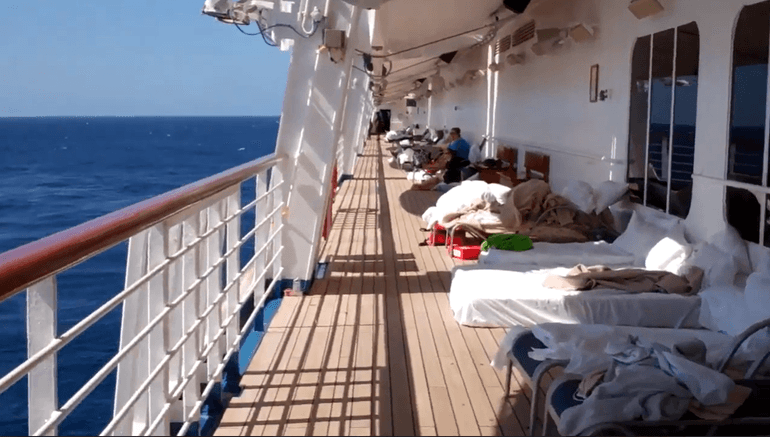
An alarm and an announcement in all of the cabins in the middle of the night were the first signs that something was wrong.
“I would say that initially, when we heard, 'Alpha Team, Alpha Team,' I was nervous. We were woken up out of sleep, and when that happened, your first thought was, 'Is this the Titanic?'” recalls Marble.
“I would say the first 30 or 40 minutes were really nerve-wracking for me until they notified us that the ship's not sinking or anything like that. Everything's under control. Go back to your normal lives,” Marble says, adding that he was less fearful after that announcement.
That feeling didn’t last. Soon, the ship’s power went off.

By signing up, you will receive newsletters and promotional content and agree to our Terms of Use and acknowledge the data practices in our Privacy Policy. You may unsubscribe at any time.
Marble and the other 3,142 passengers and 1,086 crew members endured several days with no electricity, stagnant air, occasionally unruly passengers and non-functioning toilets.
“We were not thinking about the sewage. None of us were, so that was the last thing on our minds,” Marble says about the initial reaction when the power went out.
As toilets began to overflow, passengers were directed to defecate into red biohazard bags and leave them in public spaces.
When contacted for comment about the incident, Carnival Cruise Line provided the following statement:
"The Carnival Triumph incident over 12 years ago was a teachable moment for the entire cruise industry. A thorough investigation following the incident revealed a design vulnerability which was corrected and led Carnival Cruise Line to invest more than $500 million across our entire fleet in comprehensive fire prevention and suppression, improved redundancy, and enhanced management systems, all in support of our commitment to robust safety standards."
What to pack for travel emergencies
While you can’t plan for everything, a few extra items in your suitcase could make things a bit better if you find yourself in an unfortunate situation away from home — at sea or on land. Here's what made a difference for Marble.
Batteries and flashlights
As a self-proclaimed techie who wanted to document the fun he was going to have, Marble had camera gear, lights and lots of batteries with him.
“My expectations on this trip were a lot of unlimited food and lots of partying and lots of excursions,” he says, and he wanted to document all of the fun. “I totally expected that we were going to do things like ziplining and eating tacos in another country.”
Having all that gear turned out to be a good thing. The batteries and flashlights were especially helpful.
“I’d definitely bring some extra batteries or a little power bank, for sure. Back then, power banks weren't as ubiquitous as they are today or as inexpensive,” he says. “Make sure [you have something] to create light. That’s a really important one. In your cabin when it’s pitch black, it’s hard to find your stuff.”
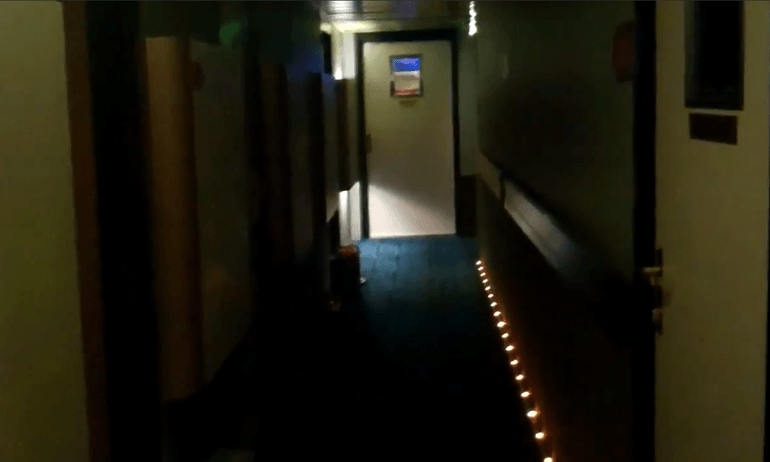
Medications
It's also not a bad idea to travel with a small pharmacy, so that you don't have to take time out of your vacation to go to a drugstore or visit a doctor for over-the-counter medications. Marble has the same advice.
“You have to think about first aid and … stuff like, what do I do if I am nauseous?” Marble says.
He also suggested an antidiarrheal medication and electrolyte powders to help you hydrate.
Sanitizer or wipes
As conditions on the Triumph worsened, staying clean became difficult.
“Running water became a problem, so now you're having a hard time washing hands, and you want to stay clean, so [bring] hand sanitizer and maybe little alcohol wipes that are disposable,” Marble suggests.
He says a pair of rubber gloves would have been nice in a few situations, too.
A watch
As Marble’s cruise dragged on, he began to crave information as simple as the time.
“If anything like this ever happens again, I would want to keep track of the time and the date and all that other stuff if the electricity goes out, so [I’d like to have] a little cheap watch,” he says. Smartwatches weren't common at the time, but even if they had been, they wouldn't have been helpful for long, since power was in short supply.
A jacket
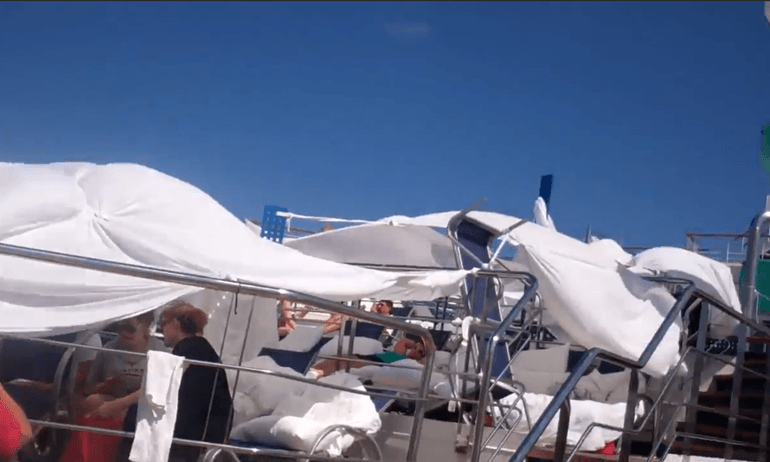
A jacket for a warm weather destination like Mexico might seem like something to leave at home, but Marble says he was happy he had one.
“I also think it would be really good to bring one of those really foldable, compressible windbreakers that fold up into a little pouch,” he suggests. “It was really windy out on deck and rainy, [so] staying dry and staying warm [was difficult], even though indoors it was stuffy and muggy."
If you wanted fresh air, he notes, you needed a way to protect yourself from the elements.
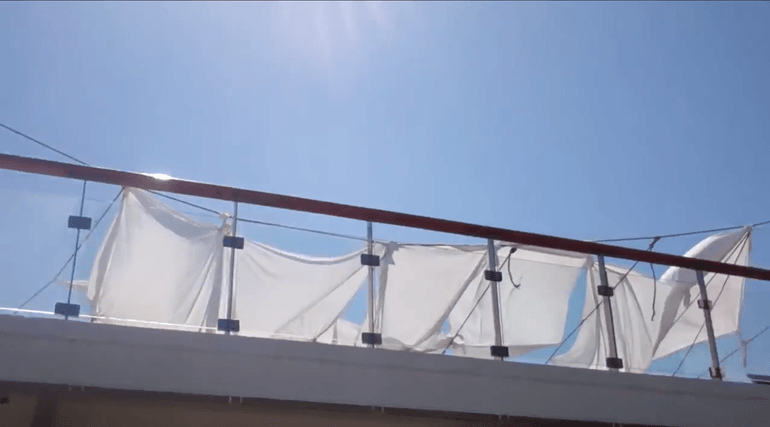
Be part of the solution
Marble had one big piece of advice for anyone who experiences an emergency while traveling: Don't contribute to the problem.
“Just pause, step back, listen, take in information before you start freaking out,” he advises, adding he saw people running with their life jackets heading to their muster stations immediately after the first announcement. "Listening, pausing, and learning before you act, I think, is primary,” he says.
In case you’re wondering, the cruise on the Triumph wasn’t Marble’s first, but he has not been on another cruise since.
“I think cruising is not for me, probably, and I don't think this experience helped. Maybe I'll go on a river cruise one day, but I think I prefer hiking. I prefer seeing land,” he says.
How to maximize your rewards
You want a travel credit card that prioritizes what’s important to you. Here are some of the best travel credit cards of 2026:
- Flexibility, point transfers and a large bonus: Chase Sapphire Preferred® Card
- No annual fee: Wells Fargo Autograph® Card
- Flat-rate travel rewards: Capital One Venture Rewards Credit Card
- Bonus travel rewards and high-end perks: Chase Sapphire Reserve®
- Luxury perks: American Express Platinum Card®
- Business travelers: Ink Business Preferred® Credit Card
Article sources
NerdWallet writers are subject matter authorities who use primary,
trustworthy sources to inform their work, including peer-reviewed
studies, government websites, academic research and interviews with
industry experts. All content is fact-checked for accuracy, timeliness
and relevance. You can learn more about NerdWallet's high
standards for journalism by reading our
editorial guidelines.
Limited Time Only: Earn $1,000 Toward Travel!
Capital One Venture Rewards Credit Card 
Travel

For a limited time, the
Capital One Venture Rewards Credit Card is offering new cardholders an especially rich bonus: Enjoy $250 to use on Capital One Travel in your first cardholder year, plus earn 75,000 bonus miles once you spend $4,000 on purchases within the first 3 months from account opening - that’s equal to $1,000 in travel!
Related articles








